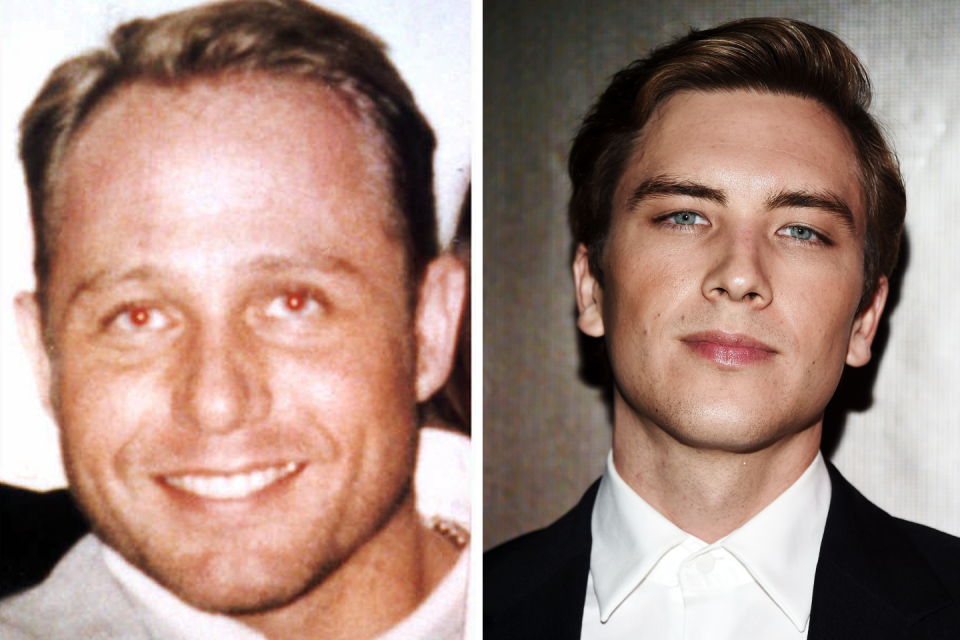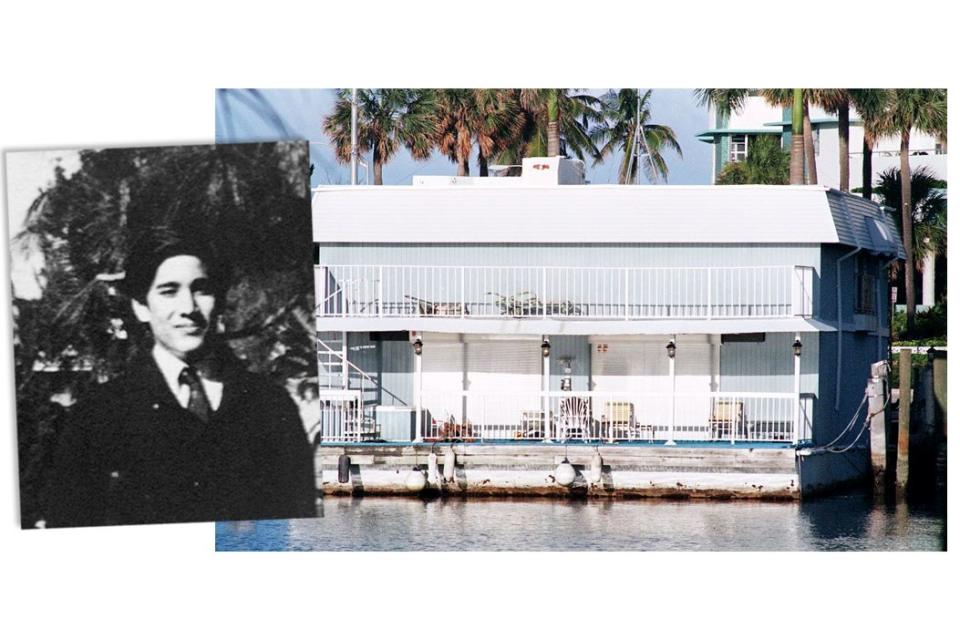Versace : Everything We Know About Andrew Cunanan’s Suicide
On the finale episode of American Crime Story: The Assassination of Gianni Versace, “Alone,” serial killer Andrew Cunanan hides out on a pale-blue house boat in Miami, transfixed by a glowing television screen. When a news break reports that authorities have identified him as the killer of Gianni Versace, Cunanan is not wracked with the panic of a criminal about to be caught. Instead, he’s elated as he drinks champagne, relaxes on the boat’s roof deck, and enjoys his moment of infamy.
As the authorities intensify their manhunt, Max Greenfield’s character, Ronnie, poignantly articulates the most probable motivation behind Cunanan’s murder spree: “Andrew wanted you to know about his pain,” he says, invoking the stigma of Cunanan’s sexual orientation and the trauma of Cunanan’s childhood. “Andrew is not hiding,” Ronnie continues. “He’s trying to be seen.”
In real life, the F.B.I. confirmed as much during a press conference shortly after Cunanan’s death—revealing that, even as authorities closed in on the killer, “he went out in the afternoons and late evening. He was a very visible person, not a recluse, not a shut-in.”
But if that were the case, why did Cunanan kill himself after achieving what he had so desperately wanted all along? It is a question that series star Darren Criss, who plays Cunanan, and American Crime Story writer and executive producer Tom Rob Smith have pondered at length.
“Tom made a really good point that [Andrew] would have been alive to watch Versace’s funeral,” Criss told Vanity Fair’s Still Watching: Versace hosts Joanna Robinson and Richard Lawson on the podcast’s latest episode. Had he watched the star-studded Milan ceremony, which took place one day before Cunanan’s suicide, “[Cunanan] would have seen on television in the front row Elton John, Princess Diana, Trudie Styler, Sting . . . basically his dream funeral. Literally living through this guy’s death,” Criss continued.
Vanity Fair contributor Maureen Orth, who wrote the book, Vulgar Favors, on which the series is based, reported that a nearby sailboat had been broken into during the same period Cunanan was on the run in Miami. Its owner, upon returning, found “newspapers opened to stories of the Versace killing, including Versace’s hometown paper, Milan’s Corriere della Sera.”
“[Andrew] would have seen his face in every magazine and every newspaper. If you say all he wanted was fame and recognition . . . he could have been [Charles] Manson,” Criss said, imagining a scenario in which Cunanan did not kill himself. “He could have gone to the trial, he could have gone to prison, he could have been incarcerated and been the stuff of serial-killer legend for the rest of this life.” Series producer Brad Simpson agrees, telling Still Watching: Versace: “He could have been Charlie Manson sitting in prison right now. He could have been O.J. Simpson. He ultimately chose suicide. Andrew is the final victim in the show. We talked about how to show someone going from exhilaration to complete despair.”
But as Ronnie points out on Wednesday’s episode, the consequences of killing a famous person like Gianni Versace are different from the consequences of killing a non-famous person. Cunanan had been able to evade authorities for nearly three months because his murders in multiple states had been clumsily handled by different, uncommunicative jurisdictions. After Cunanan murdered an international celebrity, Gianni Versace, the investigation became more focused and aggressive—involving 1,000 agents across the country. According to the F.B.I., this intensity “drove [Cunanan] inside, forced him to change his pattern.”
Cunanan suddenly found himself trapped on the island city of Miami Beach—with airports on full alert, his face papered on posters, and police checkpoints stationed on each causeway connecting the city to the mainland. The media covered the story so exhaustively that, according to Orth, Cunanan’s mother, MaryAnn, was transported from her home by the F.B.I. and hidden in a witness-protection program.
Cunanan spent his final days in a state of desperation, according to a New York Times report that alleged Cunanan “telephoned an acquaintance frantically trying to get a fake passport so he could escape.” (There is no evidence that Cunanan placed a call to his father Pete, or saw his father participate in any televised press interviews, as is dramatized on the TV series. Orth reported that Pete did not return to America, to begin shopping the movie and book rights to his family’s story, until after Cunanan had killed himself.) Surrounded with no way to escape, Cunanan was forced to make a quick decision about his fate. And rather than enjoy his criminal infamy, Cunanan shot himself with the gun he stole from his first victim when he heard someone enter the houseboat.
The person who stumbled upon Cunanan’s hideaway—just 41 blocks north of Versace’s mansion—was the houseboat’s caretaker, Fernando Carreira. When Carreira checked the boat, he was alarmed to see that the lock was unlatched, the lights were on, and the drapes were drawn. Inside, he noticed two sandals and a sofa that had been fashioned into a bed. Overhead, he heard a gun shot in the second-floor master bedroom. He ran outside and called his son, who phoned 911. Police arrived within four minutes—followed by a battalion of helicopters, boats, and dogs.
About four hours later, “police fired eight rounds of tear gas or ‘flash-bang’ grenades into the boat. They shouted ‘Come out! Come out!’ Eventually, eight officers—huddled behind shields—stormed the boat.”
When authorities entered the premises, they found Cunanan dead from a self-inflicted gunshot in the master bedroom. Orth described the grim scene in Vulgar Favors: “Andrew, eyes open, with several days’ growth of beard, was lying in a pool of blood on a pillow propped on another pillow. He had shot himself through the mouth. Blood from his ears, nose, and mouth had caked, and the pillow was also soaked in blood.”
“Is it shame? Is it isolation? Desperation? We don’t know,” series producer Nina Jacobson explained on Still Watching: Versace. “We didn’t want to project a full contrition and shame on him because we don’t have the evidence for it. We don’t know what his mindset was. We always had to walk this line of wanting to understand him without ever glorifying him. He is both the protagonist and the villain of the story.”
Today, a cursory Internet search will lead you to video footage taken inside the houseboat by police in the aftermath—with a shaky camcorder leading you through Cunanan’s final lair. A downstairs living room features a white couch with its cushions pulled off. A coffee table holds rubbing alcohol, gauze bandages, a bloody bandage, and an empty Tylenol bottle—to treat a stomach wound—as well as a stack of magazines including his beloved Vogue. A bathtub is stuffed full of fast-food wrappers—a stark contrast to the luxurious living conditions Cunanan had grown accustomed to while living with Norman Blachford, and a visual that must have been difficult to stomach for a man who told elaborate lies about growing up in incredible wealth.
At the end of her own book, Orth rationalizes Cunanan’s spree and suicide as follows:
In an effort to avoid the humiliation of his own failed life, Andrew Cunanan, who had wasted his gifts and lived resolutely on the surface, struck back. Fueled by drugs and filled with rage, his unmitigated ruin also drove him to destroy others, including the only person he had probably ever loved. With the exception of William Reese, each one of Andrew Cunanan’s victims—Jeff Trail, David Madson, Lee Miglin, and Gianni Versace—was like a piece of himself. In the end, Andrew Cunanan was a sad testament to vulgar, unrealized aspiration. The little boy who wanted a big house with an ocean view died hunted on the water with a gun for his last companion.
Criss, trying to understand why Cunanan ultimately killed himself, gives another take: “There has to have been something in him, some sense of regret and remorse. Something that I kind of came to is that, if he had stretched this out, he would no longer be in control of his own narrative. It’s out of his hands, it becomes part of the media. If taking one’s life is the ultimate arbitration of control, then that is the final act of ‘this is my story.’ And he literally took it for himself—look at us, 20 years later, talking about it. So he did get what he wanted, in this sort of twisted way.”
The Versace: American Crime Story Cast and Their Real-Life Counterparts
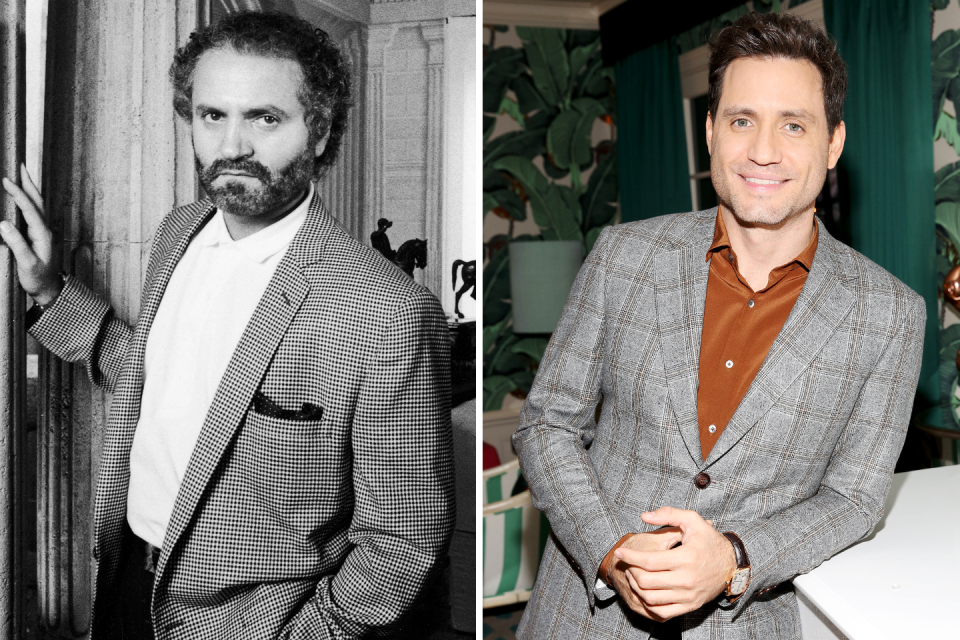
Édgar Ramírez as Gianni Versace

Penélope Cruz as Donatella Versace
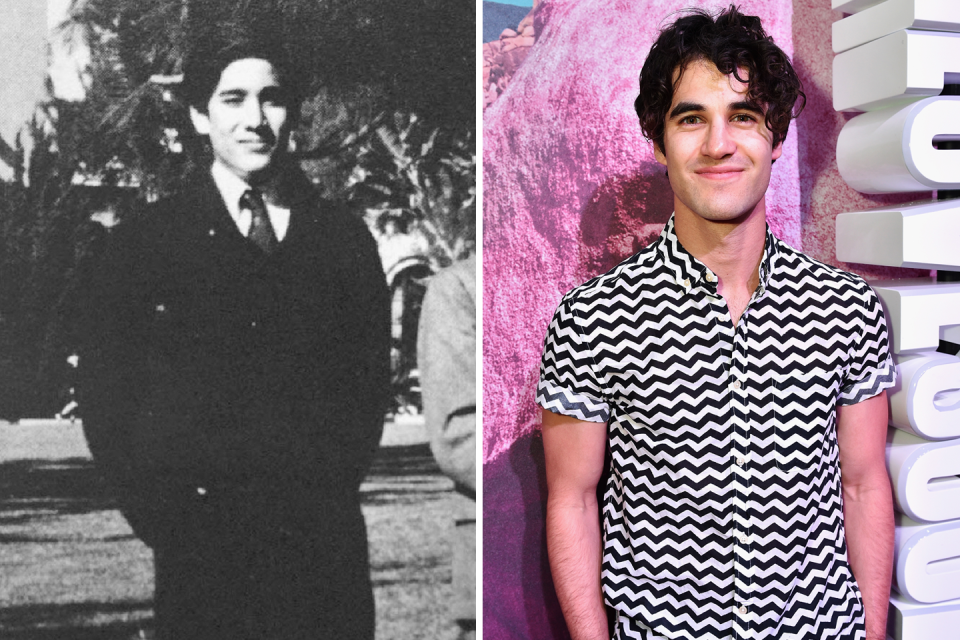
Darren Criss as Andrew Cunanan
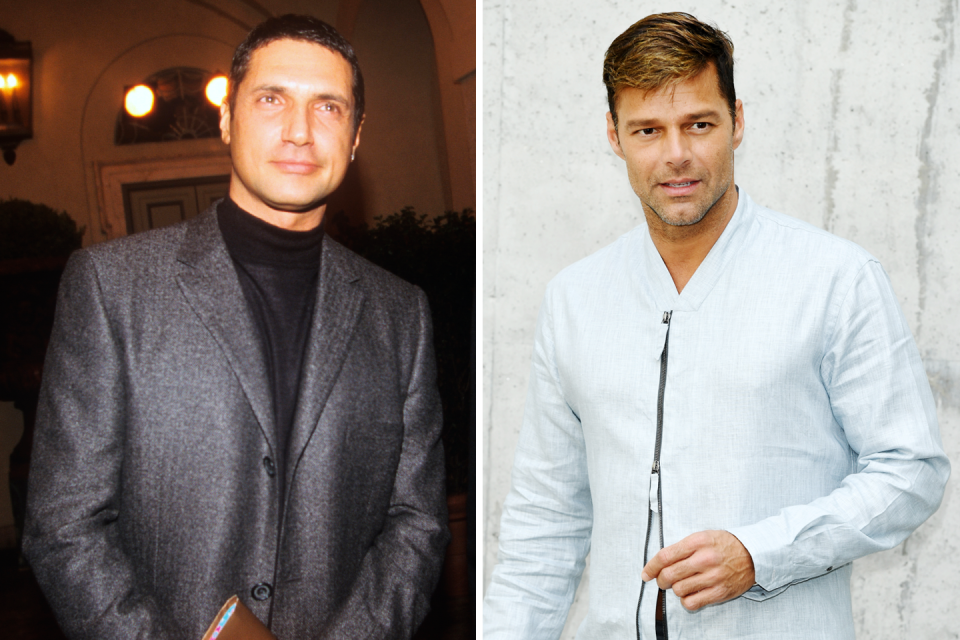
Ricky Martin as Antonio D’Amico
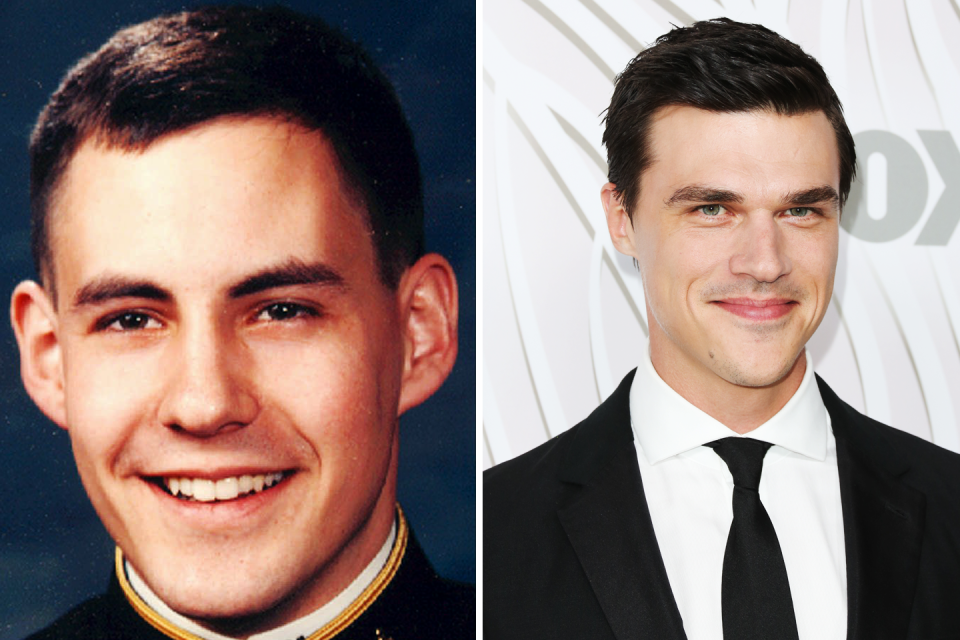
Finn Wittrock as Jeff Trail
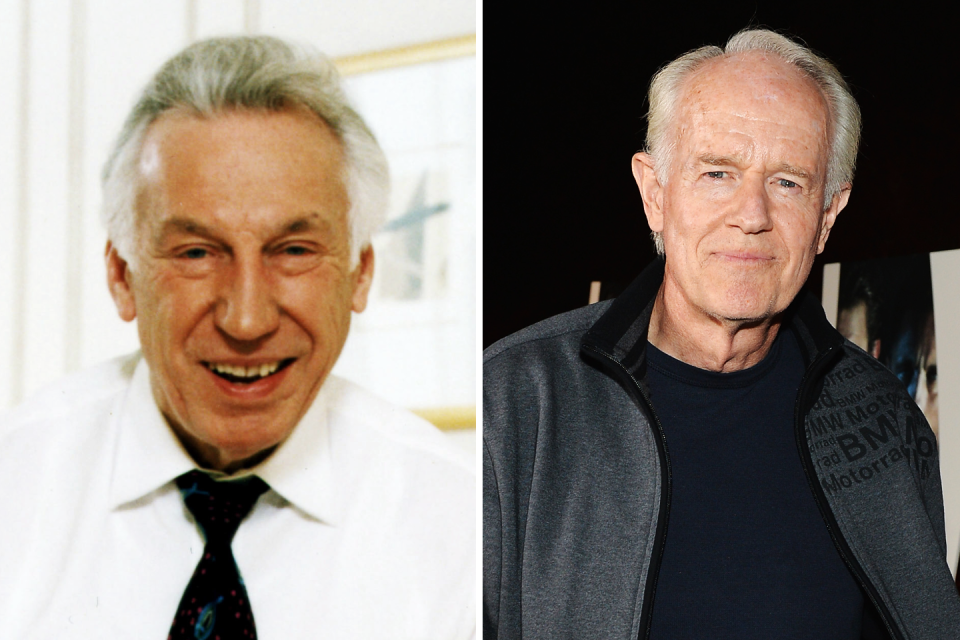
Mike Farrell as Lee Miglin
